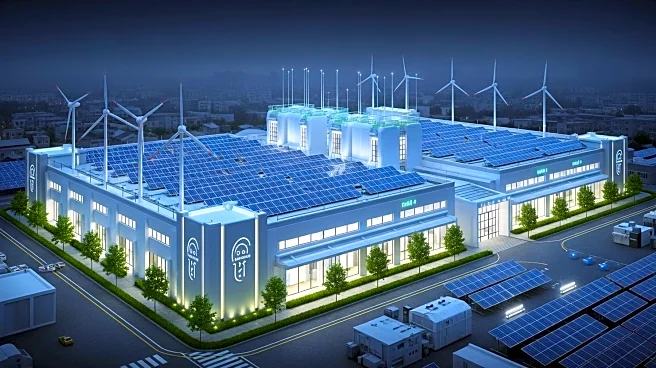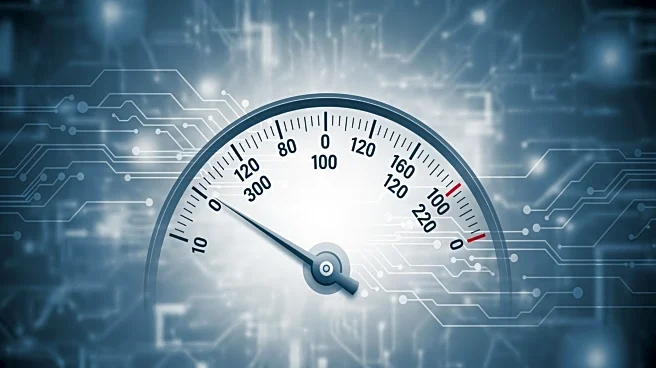What's Happening?
The semiconductor industry is undergoing a significant transformation towards sustainability, driven by environmental concerns and regulatory pressures. Major manufacturers like TSMC and Intel are committing to using 100% renewable electricity in their operations. This shift is part of a broader industry trend towards reducing the environmental impact of chip production, which is known for high energy and water consumption and the use of hazardous chemicals. The industry is adopting green technologies, such as closed-loop water recycling systems and green chemistry, to minimize waste and emissions. Additionally, AI and machine learning are being utilized to optimize manufacturing processes, further enhancing energy efficiency.
Why It's Important?
This move towards sustainability in semiconductor manufacturing is crucial as the demand for advanced chips, particularly for AI applications, continues to grow. The industry's environmental footprint is significant, and without these changes, it could become unsustainable. By adopting renewable energy and other green practices, manufacturers can reduce their carbon emissions and resource consumption, aligning with the net-zero commitments of major tech companies like Apple, Microsoft, Amazon, and Alphabet. This not only helps in mitigating climate change but also provides a competitive advantage in the market, as consumers and investors increasingly prioritize environmental responsibility.
What's Next?
In the coming years, the semiconductor industry is expected to see widespread adoption of renewable energy and advanced water recycling systems. The U.S. Department of Commerce is investing in AI-driven research to develop sustainable semiconductor materials, aiming for adoption within five years. As these technologies mature, they will likely become standard practice, further reducing the industry's environmental impact. However, challenges remain, such as the high energy consumption of advanced manufacturing processes and water scarcity in regions hosting major fabs. Addressing these issues will require continued innovation and collaboration across the industry.
Beyond the Headlines
The shift towards sustainable semiconductor manufacturing has broader implications for the tech industry and society. It represents a fundamental change in how technology companies approach environmental responsibility, integrating it into their core strategies. This transformation is not only about reducing the industry's footprint but also about enabling a sustainable AI ecosystem. As AI models grow in complexity, the need for energy-efficient chips becomes more critical. The industry's efforts to develop 'green chips' will play a key role in ensuring that technological progress does not come at the expense of the environment.










